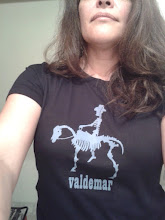¿Sabían que 56.000 caribeños de las colonias británicas participaron en la II Guerra Mundial? 16.000 junto a las tropas británicas y 40.000 junto a las americanas. ¿Sabían que el subcontinente indio – los actuales India, Pakistan, Bangladesh y Sri Lanka- fue el que contribuyó con un mayor número de tropas de voluntarios a la causa de los aliados en la II Guerra Mundial?: dos millones y medio de hombres y mujeres. Me pregunto por qué no se les agradece también a ellos y a sus muertos el que hoy los europeos no estemos marchando al paso de la oca.

© Imperial War Museum

© Imperial War Museum
La novela de Andrea Levy, Small Island, propició mi curiosidad para saber más de estas gentes históricamente semi olvidadas. En la novela oímos cuatro voces; las de Gilbert y Hortense, jamaicanos emigrados a las islas británicas en la década de los 40 y las de Queenie y Bernard, ingleses que ven cómo su mundo se hace añicos. Ya nada será igual. Dos momentos narrativos: 1948 y los años del siglo XX anteriores a esa fecha. Es la primera gran oleada de inmigrantes a U.K. Y tres espacios narrativos: Londres durante los blitzs, Jamaica antes y durante la guerra e India en plena campaña aliada. La madre patria soñada de los colonizados se transforma al conocerla en una vieja desdentada y maloliente. Andrea Levy consigue magistralmente meternos en la piel del distinto. Quién mejor que una hija de inmigrantes, una jamaicana británica de segunda generación testigo de esos dos tempos culturales distintos en carne propia.
Magistral también la viveza de las jergas que emplea en su novela, de las jergas de cada uno de los personajes.
Small Island es la ganadora del Orange Prize del 2004.
Y un fragmento al azar (o no):
Gilbert
My mirror spoke to me. It said: "Man, women gonna fall at your feet." In my uniform of blue - from the left, from the right, from behind - I looked like a god. And this uniform did not even fit me so well. But what is a little bagging on the waist and tightness under the arm when you are a gallant member of the British Royal Airforce? Put several thousand Jamaican men in uniform, coop them up while, Grand Old Duke of York style, you march them up to the top of the hill and then back down again and they will think of nothing but women. When they are up they will imagine them and when they are down they will dream of them. But not this group I travelled with to America. Not Hubert, not Fulton, not Lenval, not James, not even me. Because every last one of us was too preoccupied with food. The only flesh we conjured was the sort you chewed and swallowed.
This was war. There was hardship I was prepared for - bullet, bomb and casual death - but not for the torture of missing cow-foot stew, not for the persecution of living without curried shrimp or pepper-pot soup. I was not ready, I was not trained to eat food that was prepared in a pan of boiling water, the sole purpose of which was to rid it of taste and texture. How the English built empires when their armies marched on nothing but mush should be one of wonders of the world. I thought it would be combat that would make me regret having volunteered, not boiled-up potatoes, boiled-up vegetables - grey and limp on the plate like it had been eaten once before. Why the English come to cook everything by this method? Lucky they kept that boiling business as their national secret and did not insist that people of their colonies stop frying and spicing-up their food.
I was brought up in a family with ten children. At that dinning table at home one lax moment and half my dinner could be gone to my neighbour. I learn to eat quickly whilst defending my plate with a protective arm. But with this English food I sat back, chewed slowly and willed my compatriots to thieve. I had not yet seen a war zone but if the enemy had been frying up some fish and dumpling whose knows which way I would point my gun.
Now I am telling you this so you might better understand what a lustless and ravenous Jamaican experienced when he arrived, guest of the American government, at the military camp in Virginia. The silver tray had compartments so the food did not get messed up. Into each compartment was placed bacon, eggs (two proper eggs!), sausages, fried tomato, fried potatoes, toast, a banana and an orange. The cereal with milk was in a little bowl to itself. My arm was round that plate of food before I had even sat down. Only when I was assured that the rumour of second, third or fourth helpings was not the reverie of a deranged mind, did I relax. I swear many tears were wept over that breakfast. Paradise, we all decided, America is paradise. A bath with six inches of water that rivalled the Caribbean sea in my affection and more meals of equal, no, greater satisfaction than the first, had the word paradise popping from our mouths like the cork from champagne.
[Small Island, pp.105-106, Review, London 2004]


10 comentarios:
Leído todo, espero que no dejes de escribir.
alvarognr
Suerte!!!
¿Para cuándo la segunda parte del cuento chino?
Como caribeño agradezco tus comentarios sobre la novela Small Island (recién traducida al castellano)de Andrea Levy.
Tu blog es estupendo!
jpeg
Publicar un comentario